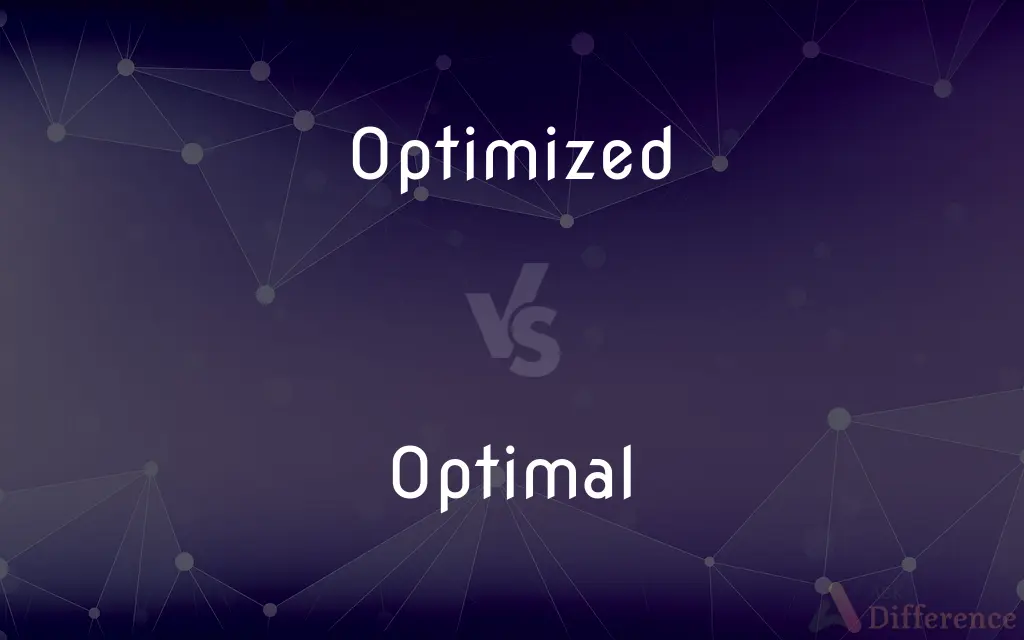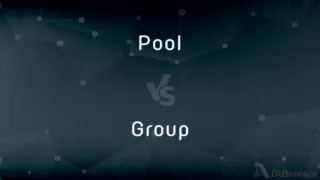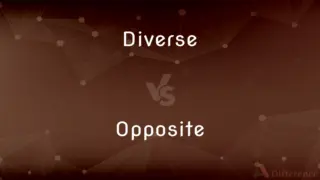Optimized vs. Optimal — What's the Difference?
By Maham Liaqat & Urooj Arif — Updated on March 28, 2024
Optimized refers to the process of making something as effective or functional as possible, while optimal represents the best or most favorable condition.

Difference Between Optimized and Optimal
Table of Contents
ADVERTISEMENT
Key Differences
Optimized is a dynamic term, focusing on the process of adjustments and improvements to reach better performance or efficiency. Whereas, optimal denotes a static state, being the highest standard or best possible scenario under given constraints.
When optimizing a system, the goal is to make iterative changes that enhance its operation, reduce waste, or improve outcomes. On the other hand, achieving an optimal state means having reached a point where any further changes would not result in better performance or efficiency.
In engineering, an optimized design evolves through modifications and testing, seeking to approach or achieve optimal performance. Conversely, an optimal design is one that, based on current knowledge and technology, cannot be improved for the desired purpose.
In decision-making, optimizing involves weighing various factors and continuously seeking improvements. Optimal decisions, however, are those considered the best among all evaluated options, given the current situation and available information.
The concept of optimized is relevant in processes where there's room for ongoing improvement, such as in manufacturing or software development. The idea of optimal, however, is often applied in theoretical contexts, where conditions or parameters can be defined clearly.
ADVERTISEMENT
Comparison Chart
Definition
Making something as efficient or effective as possible through changes.
The best or most favorable condition achievable.
Nature
Process-oriented; involves continuous improvement.
Outcome-oriented; denotes a peak condition.
Focus
Enhancements and adjustments.
Achieving the highest standard.
Application
Can be applied to processes, systems, designs.
Often used in theoretical, mathematical contexts.
Relation to Time
Ongoing, with the potential for future improvements.
Static, representing a snapshot of the best condition.
Compare with Definitions
Optimized
Adjusted to achieve maximum efficiency or effectiveness.
The optimized algorithm processes data twice as fast.
Optimal
The most favorable condition under given circumstances.
The optimal temperature for yeast growth is around 30°C.
Optimized
Enhanced for improved performance.
The team optimized the engine to reduce emissions.
Optimal
Representing the best possible outcome.
The optimal route saves both time and fuel.
Optimized
Continually improved to meet specific criteria.
The manufacturing process was optimized for lower energy consumption.
Optimal
Theoretical best scenario.
In an optimal world, renewable energy would fully power our cities.
Optimized
Made better through successive changes.
The website's layout has been optimized for user engagement.
Optimal
The highest point of efficiency or effectiveness.
The team's strategy was at its optimal during the championship.
Optimized
Tailored for the best possible operation within constraints.
The flight paths were optimized for fuel efficiency.
Optimal
Ideal, based on current knowledge and resources.
The optimal investment strategy balances risk and return.
Optimized
To make as perfect or effective as possible.
Optimal
Most favorable or desirable; optimum.
Optimized
(Computers) To increase the computing speed and efficiency of (a program), as by rewriting instructions.
Optimal
The best, most favourable or desirable, especially under some restriction.
Finding the optimal balance between features and price is a common problem.
Optimized
To make the most of.
Optimal
(artificial intelligence) Describing a search algorithm that always returns the best result.
Optimized
Simple past tense and past participle of optimize
Optimal
The best of its kind
Optimal
Best possible; most desirable; optimum; as, the optimal concentration of a drug.
Optimal
Most desirable possible under a restriction expressed or implied;
An optimum return on capital
Optimal concentration of a drug
Common Curiosities
What does it mean to optimize something?
To make adjustments or improvements to achieve better efficiency or effectiveness.
How is an optimal condition determined?
Through evaluation of possible scenarios to find the most favorable outcome given certain constraints.
How does one approach optimizing a process?
By analyzing current performance, identifying areas for improvement, and implementing changes.
Why might something optimized not be optimal?
Because it may still have potential for improvement or because optimal conditions are theoretically defined and not always practical.
Why is ongoing optimization important?
It ensures continual improvement and adaptation to changing conditions or new information.
Can the optimal condition change over time?
Yes, as circumstances, technologies, or objectives evolve, so does the definition of what is optimal.
Can there be multiple optimal solutions in a scenario?
Yes, in complex scenarios there can be several equally favorable outcomes depending on the criteria used.
Can something optimized become optimal?
Yes, if through optimization it reaches the best possible condition under the circumstances.
What role does technology play in achieving optimal solutions?
It provides tools and methodologies for more precise analysis and implementation of improvements.
How do constraints affect optimization and optimal outcomes?
Constraints define the boundaries within which optimization occurs and what constitutes an optimal outcome.
In what fields is the concept of optimized particularly relevant?
In engineering, business processes, manufacturing, and software development.
Is the optimal condition always achievable?
Not always, due to practical constraints, but it serves as a goal for optimization efforts.
What is the significance of the optimal point in decision-making?
It represents the decision with the highest expected benefit under given conditions.
How does feedback play into the process of optimization?
Feedback provides information on current performance, guiding further adjustments towards optimization.
What is a common misconception about optimal solutions?
That they are universally best, ignoring the fact that they depend on specific goals, criteria, and constraints.
Share Your Discovery

Previous Comparison
Pool vs. Group
Next Comparison
Diverse vs. OppositeAuthor Spotlight
Written by
Maham LiaqatCo-written by
Urooj ArifUrooj is a skilled content writer at Ask Difference, known for her exceptional ability to simplify complex topics into engaging and informative content. With a passion for research and a flair for clear, concise writing, she consistently delivers articles that resonate with our diverse audience.














































